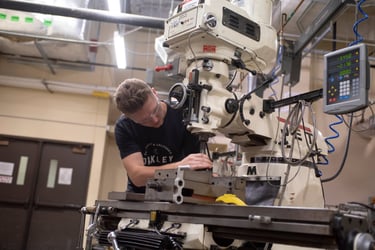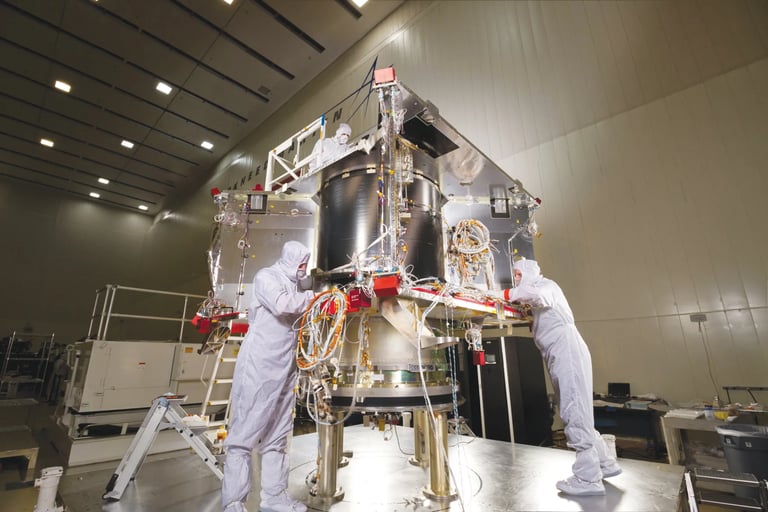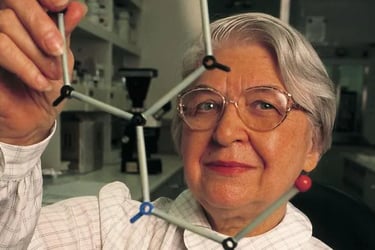What is Mechanical Engineering?
MechE Applications, Concepts, Resources, and Female Pioneers in the field!


Welcome to the fascinating world of mechanical engineering! In this blog post, we will delve into what mechanical engineering is, explore some real-world applications, discuss the basic concepts that form the foundation of this field, highlight three female pioneers who have made significant contributions, and provide resources for further learning. Let's get started!
What is Mechanical Engineering?
Mechanical engineering is a diverse and multidisciplinary branch of engineering that focuses on the design, analysis, and manufacturing of mechanical systems. It encompasses various areas such as mechanics, thermodynamics, materials science, and robotics, among others. Mechanical engineers apply scientific and mathematical principles to create innovative solutions for a wide range of problems.
Basic Concepts in Mechanical Engineering
Several fundamental concepts form the backbone of mechanical engineering. Here are a few key areas:
Statics and Dynamics: Statics deals with the equilibrium of objects at rest, while dynamics focuses on the motion of objects and the forces that cause them to move.
Thermodynamics: Thermodynamics is the study of energy and its transformations, particularly in relation to heat and work.
Mechanics of Materials: This area examines the behavior of materials under different loads and stresses, including properties like strength, stiffness, and fatigue resistance.
Fluid Mechanics: Fluid mechanics explores the behavior of fluids (liquids and gases) and their interactions with forces and surfaces.
Mechanical Design: Mechanical design involves the creation and optimization of mechanical systems, considering factors such as functionality, safety, and manufacturability.
Real-World Applications
The applications of mechanical engineering are vast and can be found in almost every aspect of our daily lives. Here are a few examples:
Automotive Industry: Mechanical engineers play a crucial role in designing and developing vehicles, improving fuel efficiency, and enhancing safety features.
Aerospace Industry: Mechanical engineers contribute to the design and manufacturing of aircraft, spacecraft, and propulsion systems.
Biomedical Engineering: Mechanical engineers collaborate with medical professionals to develop prosthetics, medical devices, and imaging systems.
Energy Sector: Mechanical engineers are involved in the design and optimization of renewable energy systems, such as wind turbines and solar panels, as well as traditional energy sources like power plants.
Robotics: Mechanical engineers work on the design and control of robotic systems used in industries ranging from manufacturing to healthcare.
Female Pioneers in Mechanical Engineering
While the field of mechanical engineering has historically been male-dominated, there have been notable female pioneers who have made significant contributions. Here are three remarkable women who are revolutionizing the field and have left their mark:
Lillian Gilbreth: Lillian Gilbreth was an American industrial engineer who made significant contributions to the field of motion study and human factors engineering. She developed numerous techniques for improving efficiency and productivity in workplaces, particularly in areas such as time and motion studies.
Stephanie Kwolek: Stephanie Kwolek was an American chemist and inventor who is best known for her invention of Kevlar, a high-strength synthetic fiber. Kevlar has a wide range of applications, including bulletproof vests, aerospace components, and sporting equipment.
Where to Learn More
If you're interested in diving deeper into the world of mechanical engineering, here are some resources to help you learn more:
Books: Explore books such as "Mechanical Engineering: Principles and Practices" by Michael R. Lindeburg and "Shigley's Mechanical Engineering Design" by Richard G. Budynas and Keith J. Nisbett.
Online Courses: Platforms like Coursera, edX, and Udemy offer a wide range of online courses on mechanical engineering topics, including introductory courses and specialized subjects.
Professional Organizations: Joining professional organizations such as the American Society of Mechanical Engineers (ASME) can provide access to resources, publications, and networking opportunities.
University Programs: Consider pursuing a degree in mechanical engineering at a reputable university, where you can gain in-depth knowledge and practical experience through coursework and hands-on projects.
IntelliHer: Our bi-weekly STEM newsletters showcase many opportunities to get involved in this field!
With its wide-ranging applications and exciting possibilities, mechanical engineering is a field that continues to shape the world we live in. Whether you're interested in designing cutting-edge technologies or solving complex problems, mechanical engineering offers endless opportunities for innovation. So, why not explore this dynamic field further and see where it takes you?


Stephanie Kwolek







